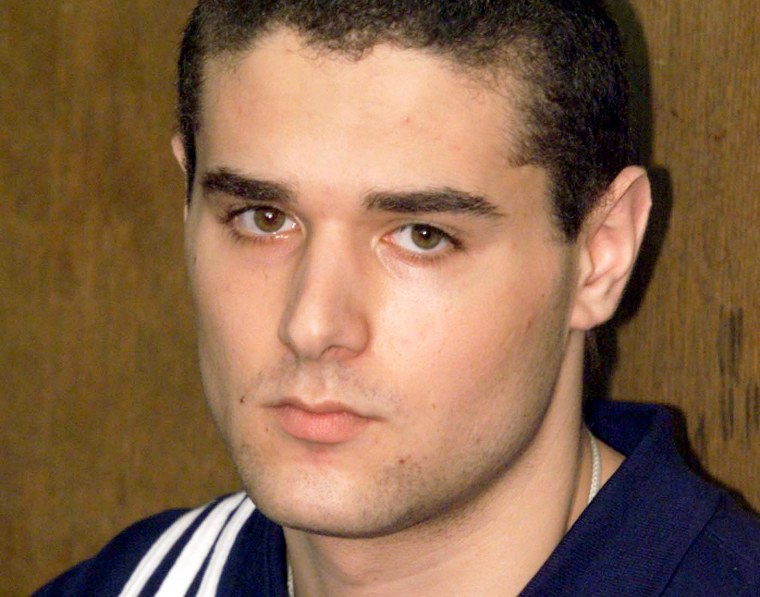The lawyer for an American killer who died in a shootout with Israeli special forces Sunday said when she tried to alert authorities about his state of mind, she was told he could “pray to God.”
Samuel Sheinbein, an American serving time in Israel for a 1997 Maryland murder, was killed by special forces after he shot several guards with a stolen gun and barricaded himself inside his prison compound, police said.
Sheinbein’s lawyer, Orit Hayoun, told NBC News that she had received a disturbing phone call from him about an hour before the shooting started.
“He said he was calling to say goodbye,” said Hayoun. “He asked me to make arrangements for after his death. I was very worried. He was very intelligent, and not the type of person to say things and not do them.”
After the call, she tried to alert the prison authorities to her client's state of mind. But despite repeated calls, nobody picked up, Hayoun said. Eventually she said she got through to a prison liaison officer who told her, “If your boy’s in trouble, he can pray to God.”
An Israeli Prison Authority spokesperson said that Hayoun’s calls were received while the shooting was going on.
Two of the guards were seriously wounded, police spokesman Micky Rosenfeld told the Associated Press.
Sheinbein was two-thirds of the way through his 24-year sentence imposed by an Israeli court for the gruesome 1997 murder and dismemberment 19-year-old Alfredo Enrique Tello Jr. in Aspen Hill, Md.
He was just 17 years old at the time of the crime, but with the help of his father he managed to escape to Israel, where a law, changed as a result of his case, prohibited his extradition.
Hayoun said her client’s good behavior had won him a place on the prison furlough program, but she believed he was being pressured by prison gangs to smuggle in contraband.
